Text
26 Reminders for Going to School Like a Badass
1. Your attitude dictates your experience, so start finding things to get psyched about.
2. Stock up on healthy snacks in your house!!! You’ll be glad you did when the study-munchies roll around (and they always do).
3. Invest in a good planner. Especially if you take part in multiple extra-curriculars, I can’t stress how helpful it is having a place to check back on deadlines and big events.
4. Write down all your teachers’ names and emails as soon as you get them, so you’re not searching for them when you’re absent.
5. No one is having as much fun as their snapchat story makes it seem.
6. Don’t believe what your peers tell you about tests they take before you, study how much YOU need to.
7. Be nice to your math teacher. Partial credit on math problems might save your grade.
8. Don’t throw out syllabuses/first day handouts!!!! Theres a good chance they have information on the late policy and a gazillion other helpful things.
9. In fact, try to hold on to as many papers as you can for when finals inevitably attack.
10. No one knows you wore those jeans yesterday.
11. Be conscious of how you smell. Don’t be B.O. kid, but also try not to suffocate your lab partner with the scent of artificial fruit/flowers.
12. That cookie in the cafeteria is probably not worth 95 cents. Pack snacks from home to resist overpriced school treats.
13. If you’re carrying around a travel mug of coffee, people will usually leave you alone.
14. Don’t spend more time planning your study schedule than actually studying. Just get your books out and do it.
15. Never underestimate the amount of motivation you can get from watching Legally Blonde (movie or musical).
16. Try to attend at least one school sporting event per season, even if thats not really your scene. Some teachers even offer extra credit for going to big games!
17. Don’t be that kid that asks the teacher when you’re getting your tests back. They have like a gazillion to grade. You’ll get them when they’re done.
18. Have a pump-up playlist for the ride to school and the walk to your first class. Nothing feels more badass than walking through crowded hallways while listening to Halsey’s “New Americana”.
19. Set up a back-up study zone for when you need a change of pace.
20. Don’t put off creative projects because you think they’ll be less time consuming. There’s nothing worse than glitter gluing a scale model of the U.S. Senate at 3 AM because you thought it would be quick and easy.
21. That extra 10 minutes of sleep is not worth the risk of oversleeping completely. Get up, splash your face with some cold water, and get this show on the road.
22. Find a school inspiration, whether it be a really hardworking friend or a studyblr you follow. Check their progress whenever you need motivation.
23. If someone only ever talks to you when they need to copy the homework, they’re using. Don’t indulge them.
24. Doing your own work is so SO important. Plagiarism can destroy careers.
25. Creative outlets can be so refreshing, like a diary, a private tumblr, a sketchbook, whatever floats your boat.
26. When all else fails, remember how lucky you are to be getting an education. School isn’t a punishment, its an opportunity for you to create a kick-ass foundation for the rest of your life.
49K notes
·
View notes
Photo



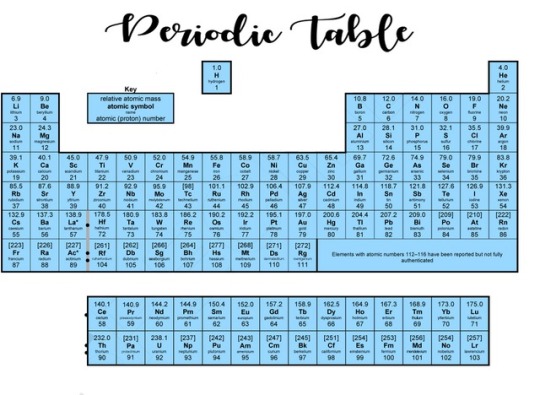

Ok so here are the other periodic table colours! I made a colour coded one with the elements 112-116 and their known masses (some of them are unknown still) after some comments from people, thank you for the suggestions 🌈🌈
Feel free to use or print these, let me know if you like them or if you use them!!
880 notes
·
View notes
Photo
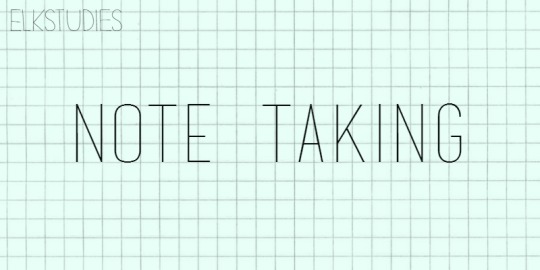
How To Take Notes
Annotations and Note Taking
Annotations and Colour-Coding
College Note Taking 101
Guide to Note Taking
How to Maintain Good Notes
How to Take Lecture Notes
How to Take Notes if you Hate Taking Notes
How to Take Notes
How to Take Notes |2|
How to Take Notes From a Textbook
Note Taking Post
Take Effective Lecture Notes
Taking Lecture Notes
Typing Your Notes
Note Taking Methods
Cornell Note Taking Method
Note Taking Methods
Note Taking System
Study Methods
Visual Note Taking
How To Make Notes Look Pretty
Guide to Pretty Notes
How to Illustrate Your Notes
How to Make Your Notes Look Pretty
Sketchnote Tips
Visual Guide to Illustrated Notes
How To Make Notes Using One Note
Cornell Note Taking Method on One Note
How to Take Notes Using One Note
Note Taking Printables
Note Outline Printable
Note Printables
29K notes
·
View notes
Text
Tips for creating a clean and efficient workspace
1. Empty your desk as much as possible. Try to minimize the surface area you use on your desk so you can only have study materials on it.
2. Prioritize your work: My dad always says work first, fun after lol. Set a timer for the amount of time you work (25 min is usually what people set it as) and then once the timer goes off step out of your desk, your screen and do some stretches, maybe talk to someone who you live with, chop some veggies etc. Just keep your mind at bay for 5-10 min before getting back to work.
3. Keep essentials in one place- textbooks, notebooks, loose leaf paper, black pens, flash cards - everything you know YOU will need. This is so you won’t get distracted looking for something and eventually forgetting to work and your study time runs out.
4. Which brings us to our next point, focus. It’s hard to keep your head in the books, try to see what keeps you focused when you do something else. Do you listen to music? Is your environment really quiet? Do you like to time-lapse your activities? Have a snack/tea beside you? Apps like Forest can help too :)
5. Your health comes first. If there is something getting in the way of your focus time, then attain to it. Meditate every morning or before you study to clear your mind. Do things that make you happy during your study breaks. I know it’s hard to stay away sometimes because of all the deadlines that you have but you matter more than your grades. Always make time for yourself.
Have a great start of the semester and best of luck! <3
22 notes
·
View notes
Text
Masterpost for Writing Academic Essays!
This is a question I typically receive from followers, especially this time of year, when many are returning to school. Incidentally, I happen to be a full-time tutor, with a proofreading service for $5 per page. So I thought it was time to provide students with some resources and tips for writing essays!
The Basics:
Structure:
Title - Don’t forget or forsake the title. So many students don’t realize it’s missing until it’s already been submitted, or use an incredibly generic title. Try to get descriptive – it’s okay if it sounds a bit like clickbait. “The Forgotten Female Spies of WII” is infinitely better than “WWII Essay.”
Introduction - Try to make your introductory paragraph interesting, but it’s okay if you let the subject matter speak for itself. Start broadly, with descriptions of the topic or something pertaining to it, and narrow it into an argumentative thesis.
The Thesis - The thesis is the assertion around which you are building your essay. It is your main argument. It is also a navigation tool for both you and the reader: it will help them contextualize your information, and will help your writing remain focused.
Note: the thesis statement must be an arguable assertion, not the statement of a fact. “The Earth is round” is a fact, not a thesis statement (don’t @ me, Flat Earth Society.) “Despite the fact that the Earth is round, there are valid sociological reasons for the belief that it is flat” is.
Body - These paragraphs are where you support your argument, using evidence and references. Each paragraph of the body should be comprised of several respective segments.
Assertion - Each paragraph is started with an assertion.
Evidence - Sources or observations that back up your assertion.
Explanation - Explain your evidence and how it validates your assertion.
Conclusion - A statement that links your assertion, and the evidence supporting it, to your thesis statement.
Note: link each paragraph together with transition phrases, such as “additionally,” “conversely,” “therefore,” “furthermore,” “moreover,” et cetera. This will keep your ideas from feeling disjointed.
Conclusion - Reiterate your thesis statement and why it matters. Make the reader feel justified for taking the time to read your essay.
Citation - Include any sources you used to validate your points.
Citation hack: Don’t be afraid of Wikipedia. The trick is, don’t cite Wikipedia – cite the references cited by Wikipedia. Many are reputable books and peer-reviewed articles.
What to avoid:
Never-ending paragraphs. You’ll want at least one paragraph break per page.
Contractions. These include can’t, won’t, wouldn’t, shouldn’t, couldn’t, shan’t, and what have you. It must be will not, would not, should not, could not, shall not. Traditionally speaking, contractions have no place in an academic essay. Command + F is an easy way to search for contractions and save your grades.
Repeated words/phrases. This is why rigorous proofreading is necessary! If you’re aware of words and phrases that you tend to repeat, Command + F is a great way to search for them as well.
Remember to:
Proofread. Ideally, you should read your paper out loud, preferably to an audience. It will really help you notice errors. If you notice errors in this, it’s because I was too lazy to rigorously proofread it.
Use the correct formatting. It depends on the professor, but I’ve seen grades docked immensely due to students ignoring the formatting guidelines. On that note:
Links to Formatting Examples:
MLA Format
Chicago Style Format
IEEE Format
AMA Style
ASA Format
APA Format
Sources:
Videos:
How To Write An Essay: Structure
How to Write An Essay: Thesis Statements
How to Write An Essay: Evidence and Citation
How to Write An Essay: Tips and Tricks
How to Write the Perfect Essay
How to start an essay with a hook
Articles:
General Essay Writing Tips
Essay Writing Tips
How to Write a Perfect Essay Outline
Transition Words & Phrases
Top 10 Student Writing Mistakes
Books:
On Writing Well
The Only Grammar Book You’ll Ever Need
A Professor’s Guide to Writing Essays
Practical Academic Essay Writing Skills
Still overwhelmed, or just plain stumped? Don’t be afraid to hit me up for my proofreading service! In the meantime, happy writing!
216 notes
·
View notes
Text
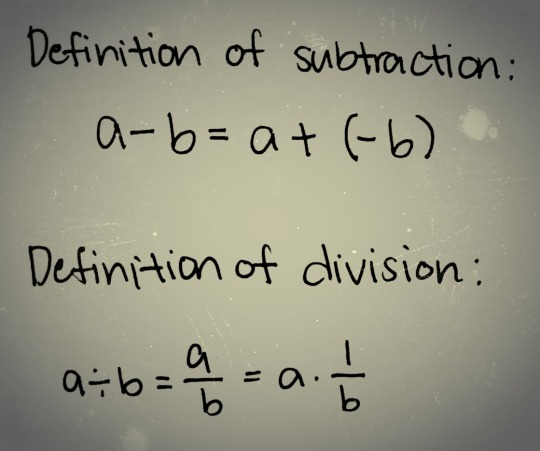
1 note
·
View note
Text
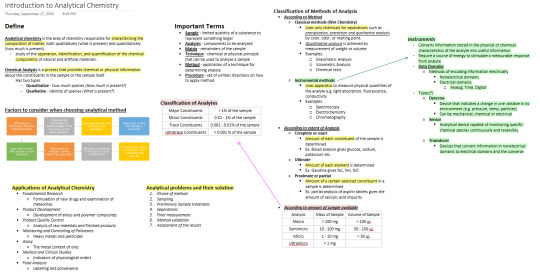
Using Microsoft OneNote for notes
A blessing for my bad handwriting
1 note
·
View note
Photo



Pod svícnem je tma. // Charcoal and watercolour
(A Czech saying; “Underneath a candle, it’s always dark.”) Somehow, it was this hellscape with a singular central pupil, as a prolonged part of the Panopticon, and countless dark cavities with surveillance cameras/reverse eyebulbs that my mind stayed on when I thought of the eyepocalyptic view. Still, it doesn’t explain why did I have to draw it on 8x8cm wide piece of paper?! (obviously, I really like to torture myself. I need to redraw it someday xD)
22 notes
·
View notes
Text
vaguely academic things to do to keep yourself entertained
go down a wikipedia research hole by clicking the first term you don’t understand
binge a crashcourse series end to end (personal recs: world history, history of science, big history, philosophy)
find free books on project gutenberg
download some western classics for free
borrow books and audiobooks from the libby app or borrowbox
start a commonplace book
take a khan academy course
browse MIT’s free online course materials
teach yourself to code
go on a google scholar essay dive
try the open access button to avoid some paywalls for academic media, or install unpaywall that does a similar thing
research the history of the place you where you live
tempt the wrath of the duolingo owl and learn a language
search for online streams of the local tv in your target language’s country and use as background noise for immersion points
print and scrapbook favourite poetry and literature quotes
improve your handwriting by doing handwriting exercises
learn philosophy with the philosophize this! podcast. actually just check out all the educational spotify podcasts there are many good ones
start a weekly club with friends to share new and interesting things you’ve learnt that week
clean and reorganise your study space, physical or digital
check out online museums
fave educational youtube channels that I adore: vsauce, crashcourse, smarter every day, kurzgesagt, school of life, tom scott, r. c. waldun, vsauce3, primer, mark rober, veritasium, asapSCIENCE, scishow, TED-ed
hopefully you’ll find something to enjoy! happy learning x
34K notes
·
View notes
Text

Old notes but now with color
#old notes#science!#student#study notes#flashcards#studyblog#microbiology#biology notes#bacteria#purple#what else do you put here#;_;
6 notes
·
View notes
Photo

an educational graphic about critical thinking for tumnblr
56K notes
·
View notes
Text
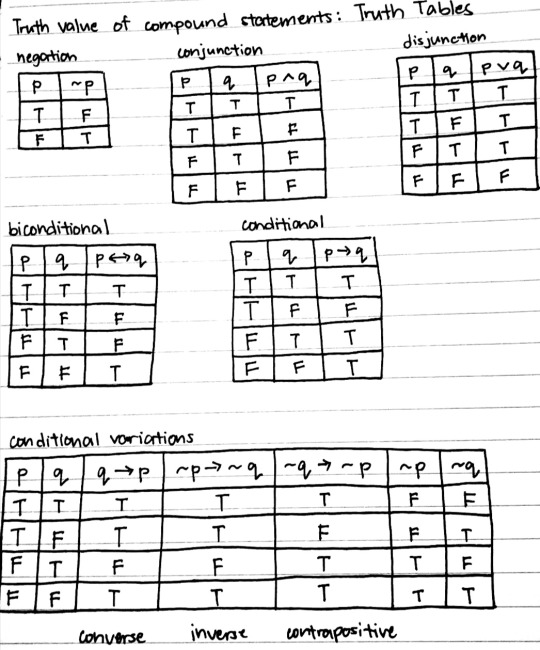
6 notes
·
View notes
Text
Study Tips that Aren’t Bullshit
Ok. Listen. I just graduated college on time with two degrees, a minor, and a 3.9 GPA, and now that it’s back-to-school time for some of you folks (my grad program doesn’t start until September) I’ve been seeing some study tips that are half-useful but mostly bullshit. So I’m here to give you some tips for collegiate success as a person who was pretty successful in the collegiate realm.
1) The Three to One Rule is Useless
Here’s the truth. Some classes are going to require minimal effort. Some are going to require more than three hours of outside study time per credit. It’s not a good rule of thumb because different people have different skills and take different amounts of time to do shit. For organic chemistry, you might be spending more 9 hours per week studying (and according to the success rates of some of my peers, I recommend you spend at least that much time on o-chem). But there’s also, say, Oceanography. I took that class. I studied/put in work… maybe an hour per week, and it was a three credit class. But I also took a class that was 3 credits called 18th Century America, and I would say I probably put something like 10-15 hours per week doing the readings and assignments for that class. It just depends, you guys. Figure out what works for each class and then distribute your time accordingly (and don’t waste time studying for something you very obviously know and have already aced).
2) Study When You Can
Sometimes you have to cram. I don’t recommend it, but it happens. If you do, use the whole day before to go over stuff and test yourself. Do not do it the morning of, don’t do it right before the test. That is useless. If you have a good memory, you can study the night before/two days before.
That said, if memorization and improvisation aren’t your strong suits, do go over your notes at the end of each day, and if you don’t get something, as your prof or your TA or your friend who definitely knows what they’re doing. Talking about it will only help you remember it more.
Overall, study when you can find the time. Sometimes that means staying off twitter for a few minutes and reviewing your notes instead, but if you’re paying good money for higher education (and I assume you are), don’t waste it by never studying or blowing off an exam.
3) Manage Your Time, But…
Just because you manage your time to make school a priority does not mean that you should let the other things in your life fall by the wayside. People often forget basic self care when they put school before everything else. Remember to shower and brush your teeth and take a minute for yourself because life is a lot and school is just a small part of your life. You cannot let time management become a synonym for school > everything else. It just means that you need to spend all of your time wisely, whether that’s getting some socialization in there or eating dinner or doing homework or taking a shower.
4) You Are Allowed to Forget Stuff
Look. I recommend always having more than one writing utensil, but you can forget one day. You can forget a notebook or a textbook every once and a while. I did, and yet I succeeded with flying colors. Definitely try not to be rushed all the time, but don’t freak out if you grabbed the wrong notebook. Just take down notes and staple them into the right one, or however you do it.
Also, yeah, your college profs aren’t here to attend to your personal needs, but if you have a class on one side of the campus and only ten minutes to get to the class on the other side of the campus, see if you can leave early or let the prof know that you’re going to be a few minutes late because you can only cross a mile so fast. Professors are far more understanding than they let on (some of them aren’t, but they’re just dicks, and you’ll either have to deal with that or be prepared to challenge them).
And, of course, if you’re struggling, ask for help. Profs want you to succeed, actually, and if they don’t, then it might be time for a discussion with the chair of the department.
5) Stay Organized, Whatever That Means
Some people stay organized with color-coded pens, tabs, and a designer planner. Some people have the patience for bullet journals. Some people write their assignments down on their phones, or set a google/apple calendar alert. However you remember things, just remember them. What’s organized to you won’t be organized for someone else, and what’s organized for someone else might not look organized to you. There is no objective way to stay organized. I don’t recommend trying to store everything inside your head, but you’ll figure out what works for you.
6) You Don’t Always Need to Read/You Don’t Always Need to Take Notes
Some classes are really important, some are not; some textbooks are really useful, some are not; taking notes can be effective, or they could be useless to you by the time the exam or essay rolls around. I took very light notes for my Brit Lit class (and did 75% of the reading), my World Drama class (90% of the reading), my Monuments in History capstone (20% of the reading), and I got A’s in all of those classes. I took heavy notes for Biology and Western Mythology and read about half of what was assigned. I took no notes for my Anthropology of Sex & Reproduction class, but I read absolutely everything.
It will probably take you about three weeks to figure out your prof’s teaching style. If it’s an English class, you’re gonna need to read most of it. If it’s a science class, maybe not. If you only have a midterm and a final, and not tests i between those, you might want to keep the textbook handy. But different classes have different requirements, just like they do with the number of hours you spend studying. So you know, act accordingly.
7) Read The Assigned Chapter Before Class, But Don’t Read Ahead
Look, most profs are gonna tell you to read the chapter before class on Monday, or maybe they’ll give you until Wednesday, so you should read in advance. But unless a prof says to read ahead, you really don’t need to read ahead, especially if you have content-based reading quizzes. It just gets really confusing and getting ahead is only necessary when you know that otherwise you’ll get behind. I mean, read ahead if you want to, but know that you probably don’t have to.
8) Show Up, For Fuck’s Sake
Look, showing up is the easiest thing in the world. And I know what having those 8am/9am classes is like. I’ll admit, I didn’t show up half the time to my 9am freshman philosophy class, but I bet I wouldn’t have failed two tests if I’d shown up (I still got an A in the class, don’t worry, there were a lot of assignments and one test didn’t count for much). I just wanted to sleep. But if you show up and pay attention, you’re more than likely going to get a lot of out of the class.
Oh, and if your prof takes attendance. Show up. Especially if it’s a small class. Trust me, they’ll notice, and it will be so embarrassing.
But also, don’t sweat it if you’re sick one day or sleep through the alarm. It fucking happens, and like I’ve said before, profs are pretty understanding most of the time.
9) Take Notes However Works For You
Some people use that weird method of dividing the paper in half hot-dog style, and that’s fine. Some people scribble shit down that no one else can read. Don’t feel pressured to rewrite your notes unless you can’t understand them. Do not review right after class - give your brain some fucking time to process that shit. But maybe review in the next 48 hours, it’ll help you be ready for the next class.
10) Don’t Be On Your Phone
Unless you’re literally not learning anything. I spent more time in my Geography class on my phone or computer getting useful things done or playing games than I did actually learning anything from the professor. In my Asian History class, the teacher was mediocre at best, so my friend and I sat there in the front row and played hangman (which was kind of disrespectful but we were idiots at the time so). But if your grades slip because you’re on your phone and not paying attention, or if your teacher has to tell you more than once to get off your phone, you might have phone addiction. See someone about that, k?
11) Review? Maybe
If you choose to review your notes, do so in a quiet, calm, and un-rushed manner. Don’t just look at them - actually try to absorb them. Otherwise there’s no point in reviewing them.
12) Study When You Can
Wait, didn’t I already have this one? Yeah. But! I saw a thing that said study early and often, which is great if you can make the time, but the truth is that if you study too early you’ll forget everything, and if you study too often you likely won’t be able to focus on other things that require your attention. So study not too long nor too shortly before the exam, and don’t study so much that your brain explodes. Give yourself a break. Have a kit-kat.
13-14) Flashcards? Mnemonic Devices?
Use them if they work for you, and maybe try color coding them. That can help with memorization. But if they don’t work for you, don’t use them.
15) Don’t Rewrite Your Notes
Unless you can’t read them. Then definitely either rewrite them or type them up, so that they’re actually usable.
16) Consolidate
This suggestion was actually pretty okay. Making lists and/or tables or whatever can really help, especially if you’re a visual learner. But if they don’t help you, don’t use them, because then it’s just a waste of your time.
17) Teach It To Someone Else
Yeah, this one is good, too. But make sure the person you’re explaining it to doesn’t have a lot of background knowledge, because it’s being able to explain it correctly to someone who hasn’t heard it before that really counts.
18) Is There Even Such a Thing as a Good Study Environment?
Some people can’t study on their own. I sure have a hard time of it, especially because I get distracted on my own. For me, studying with others for exams has saved my grade. But there are times or assignments that are best done on your own.
What I will say, is that when you study with other people, sometimes it’s best to study with your friends who are studying something else. My friend Breea and I had completely different majors and classes, but we made the best study partners because she could explain science to me and I could explain anthropology and history to her, and that’s how we knew we were good to go.
19) Sleeeeeeeeeep. Plan. Deal.
Get a good night’s sleep before an exam and try not to be late. Mean profs will not let you make up a missed exam. Good profs will, even if it was just a traffic jam. But generally speaking, try to prepare for all worst case scenarios when you have an assignment due.
20) Ask. Questions. Jesus. Christ.
Look if you get something wrong, don’t be embarrassed or ashamed. Ask why you got it wrong, and if you think you did something right but the TA or prof just graded it wrong, feel free to point out their mistakes (in private, though, not in front of the class). Go to office hours and make use of that time, or make an appointment with a prof so that you don’t have to skip class to go to office hours.
21) Midterms and Finals Are Different. Or Not.
Ask your prof at the beginning if the final will be cumulative. If it is, keep reviewing that midterm material through the end of the class. If not, feel free to forget most of the stuff from the midterm and earlier. Each prof is different and some finals aren’t even exams, they’re papers or projects. So, you know, plan accordingly.
22) Don’t Keep Your Fucking Textbooks
Look, unless you fell in love with a text (happens to English majors), sell back your books. And after a few weeks (or once the next term starts) throw out your notes, especially if you can’t read them or if they’re for a class you had to take for university credit but didn’t actually need for your major.
SELL. THOSE. BOOKS. I can’t say it enough, you won’t make much, but it’ll be nice to get that lunch after finals are over. But remember, don’t sell the book until you’ve taken/turned in the final.
23) Talk to People!
I saw something that said not to discuss grades/quizzes/tests/exams with classmates. Fuck that. I mean, try not to talk about it before the exam starts or whatever, but fucking talk about that shit. In my Mediterranean Archaeology class, we all talked about the readings before class on Fridays because we had a reading quiz and no fucking idea what the reading was about (those were some of the hardest readings ever). It was really helpful to discuss and summarize to make sure we got the point of the article. Also, like, if you’re comfortable with sharing grades, do, and if you’re not, don’t. It’s your grade, you can do whatever you want with it.
Also, if you’re unsure about something, you can ask a classmate. That’s probably a better first resource than a prof, who will get annoyed, especially if you didn’t do the reading.
THAT’S IT.
Well, I hope this fucking helps. This was basically how I survived college, except add a lot of caffeine. Every major is different, some things are universal. So. You know. Go ham.
22K notes
·
View notes
Photo

how i use google drive for university - pt 1: digital notetaking
by kkaitstudies
idk about you but i’ve tested a bunch of note taking methods. in my last few years of university, i was indeed lazy and rarely referred back to the professor’s slides in the course shell. i opted to read off the slides in lecture and take notes. while MS OneNote is great, i found myself enjoying Google Drive much more. so here is a quick overview of how i take notes using Google Docs.
folders are your friends
make separate folders for each of your courses. google drive even gives you the option to change the colours of the folders. in these folders, add any relevant coursework such as the syllabi, readings, and your notes document.

use one doc for notes per course
once you receive the syllabi, take some time to take note of required readings, and assignment deadlines. i have created a free template you can save to your own google drive that you can access here. fill out:
- course code & name
- prof’s name, office hours, and email
- date(s) for each week of class
- weekly readings (tip: if you have online readings, you can link them in the doc!)
- & open the document outline (view > show document outline)
you also don’t have to use all these features. T B H, i didn’t do weekly readings. a lot. oops. BUT i did always pay attention in lecture. i simply deleted the “reading notes” header every week i didn’t bother to read.

make use of early access to lecture slides, headers, etc.
some profs (bless their souls) post the slides sometime before the lecture. if you have the time, copy the lecture slides into your notes. and if they don’t…type real quick to get all the info as it’s happening (or go back to slides online after lecture to see what you missed out on). i separate lecture topics with headers, with the bullet points underneath (see above). if there is anything that the prof says during class that isn’t in the lecture slides, i will change the colour of the text to a different colour. any important concepts or testable material are highlighted.
…and that’s how i take notes! everyone is different. not all note-taking methods work for everyone. this is what worked for me in my last 2 years of uni. hopefully a similar structure works for some of y’all! also, let me know what you think and @ me if you end up using my template. have a great semester!
coming soon: [ part 2: grade tracker | part 3: gmail and gcal ]
10K notes
·
View notes
Text
Hello, today I've submitted my subpar (first and only) version of an essay we were told to write in 30 minutes. I was so irked that I had to redo it despite having already passed my paper. To make myself feel better, I will leave the less shitty version here for whatever fate it may have.
Language forms our reality. It is the basis of all human interactions, therefore, essential in any given society. It is how we communicate-- how we express ourselves in a way that others can understand. It reflects the daily life of people through certain vocabulary coined from the objects that are handled or from menial tasks and creative and social activities they participate in. Language also tells us what was prioritized by a specific group of people in a given time and place. For example, it could indicate one's profession. What a "bridge" is to a ship captain is different from what it means to an engineer. The jargons and slang of a language is specific to its speakers in that outsiders may not completely understand lest they learn more about it. Language adapts to our lives with how we use it, thus, it is acceptable to refer to it as a mirror of our culture.
#short essay#university#im petty#writing#studyblr#dropping this here#me is a sad#ill do better next time#ill do better tomorrow#language
4 notes
·
View notes
Text
i guess what ppl dont tell u about college is that is a very lonesome period of ur life. and that doesnt mean like u wont have lots of friends or u wont party or whatever but ur going to spend so much time alone. like cooking by yourself and studying n homework and driving and going to classes like……… its just you sometimes. and the trick is to use that time by yourself to relax and understand YOU better and iron out your own wants n wishes instead of wallowing
126K notes
·
View notes
Text


8/30/19— “see obstacles as opportunities. see obstacles as inspirations”
taking nice photos of my math and chem notes and pretending that those two classes won’t be the death of me later on. :,)
📖 | all the light we cannot see, anthony doerr
🎼 | pull, spooky black
28 notes
·
View notes